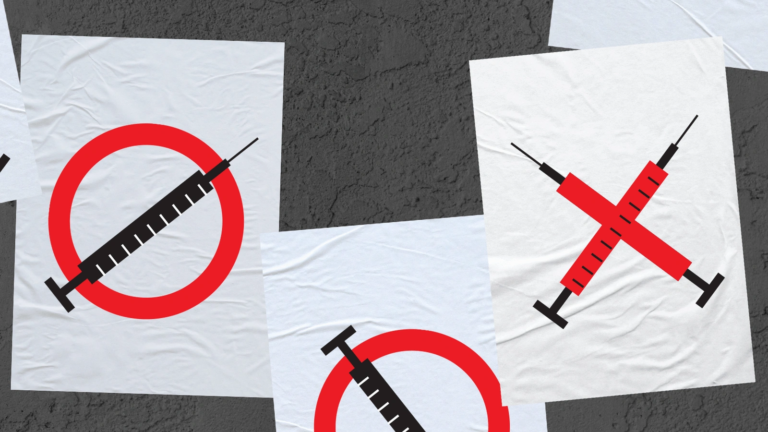Anti-Vaxxers, Are They All Conspiracy Freaks?

With over 100 million people infected and over 2 million deaths, the Covid-19 pandemic has impacted the lives of almost everyone on Earth. As people yearn for a sense of relative normalcy, concerns are mounting over the increasing public skepticism, apathy, and even hostility to the most promising solution to control the pandemic: the vaccine.
Vaccines save lives. They have achieved complete or near-complete eradication of diseases, such as measles and smallpox that were once thought impossible to beat. Based on evidence from clinical trials, the Pfizer-BioNTech vaccine was 95% effective at preventing Covid-19 illness in people, and the Moderna vaccine, 94% effective. Despite this, a recent nationally representative U.S. study found that people’s self-reported intent of getting a Covid-19 vaccine declined from 74% in early April to 56% in early December 2020. According to data from the Pew Research Center, about two in ten Americans are certain they will not change their mind about refusing the vaccine. These data are alarming, as even the most effective vaccines will not end the pandemic if not enough people take them.
It is tempting to dismiss those who refuse the vaccine as conspiracy theorists. Misinformation around the vaccine remains a critical threat that we must tackle head-on. However, conspiracy theorists and anti-vaxxers are not the only groups who are hesitant. Even among those who consider Covid a real concern, mistrust in the vaccine itself—from its development and testing to its distribution—along with inconsistent messages from the government, has decreased intentions to take the vaccine.
While vaccine refusal is usually most prevalent in wealthy, white communities, hesitancy rates for Covid vaccines appear to follow a different demographic pattern. Repeated studies show that marginalized ethnic minority populations are most at risk of infection and death from Covid. Yet, they are also the least likely to report that they plan to be vaccinated.
There’s a logic to this refusal: In American medicine, not everyone is treated with the same standard of care. Historical examples of Black Americans being mistreated, neglected, and even abused by the medical establishment loom large in the minds of many. For example, behind the Black community’s wariness of the Covid vaccine is the lingering legacy of the 1932 U.S. Public Health Service Syphilis Study at Tuskegee, in which hundreds of Black men—some with syphilis and some without—were intentionally misled about the study’s purpose and did not receive treatment for their syphilis even after penicillin became widely used to cure the disease.
Differences in medical treatment by race are not relegated to the past. In present times, Black newborns die at three times the rate of white newborns. A study published last September examining 1.8 million U.S. hospital births found that Black doctors cared for Black newborns, and the mortality rate was halved.
Minority and ethnic communities may also be more wary of Covid vaccines because they know they have been underrepresented in the vaccines’ clinical trials, even though Covid is more common and severe among such groups. The understanding that different groups may have different responses to vaccination can contribute to vaccine skepticism. Overall, trust toward the medical profession is understandably lower in the minority populations as compared to whites.
While healthcare workers have priority to receive the vaccine around the country, a recent survey by Kaiser Family Foundation found that nearly a third would probably or definitely refuse vaccination when offered. At Providence Holy Cross Medical Center in Mission Hills, California, one in five frontline nurses and doctors have declined the shot.
Vaccine cynicism among health-care workers can be surprising. Surely, medical staff know more than any of us about the importance of vaccines, as well as the devastating effects of the coronavirus, and have access to the safety data needed to reassure themselves.
Underlying the hesitancy is a lack of trust in authorities — the federal government, politicians, and employers, who put many health-care workers in difficult situations over the last year. More work needs to be done to understand and address why health-care workers are hesitant to be vaccinated.
As we’ve seen, vaccine skepticism isn’t limited to fringe conspiracy theorists but is prevalent in particular races, ethnicities, and professions. Overall, it is rooted in a fundamental lack of trust of authorities and experts for what many view as their gross mishandling of the pandemic.
Many “wait and see” vaccine skeptics are people in high-risk groups who want to observe how the vaccine plays out in their own communities. It is important for authorities to do all they can to provide vaccine data and trial findings, and to encourage free and fair discussions.
Public endorsements of Covid-19 vaccines from trusted leaders from the same demographics and communities will build confidence and persuade the public about the safety and necessity of the vaccine. Simple measures like “I vaccinated” stickers, similar to “I voted” or “I donated blood” promotions, can increase visibility and normalize vaccinations in society. Most crucially, though, government officials, medical authorities, and other leaders need to have a consistent and reassuring message that we are all better with the vaccine than without it.
